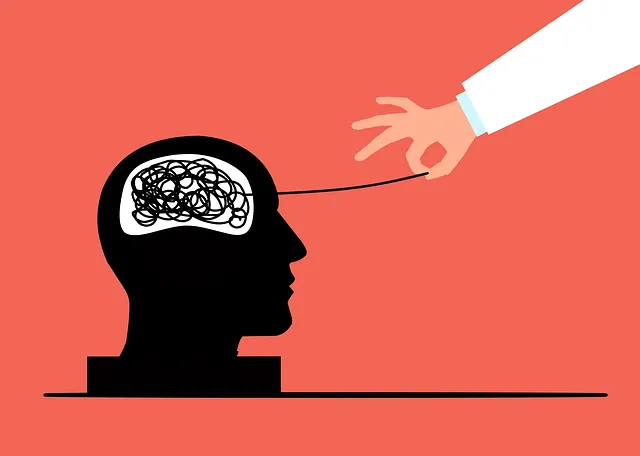The Lafayette Kaiser Permanente Behavioral Health Center leverages advanced data analytics, including statistical modeling, machine learning, and natural language processing, to gain deep insights from patient data. This enables them to offer personalized mental health services, predict outcomes, and proactively address issues like self-esteem and depression. Their strategic approach leads to improved patient outcomes, better quality care, and continuous service enhancements that benefit the broader community through evidence-based programs focused on emotional well-being.
Mental health data analysis is a powerful tool for improving patient care, as exemplified by the approaches employed at the Lafayette Kaiser Permanente Behavioral Health Center (KPBHC). This article explores the process of understanding and interpreting mental health data, highlighting key techniques that KPBHC utilizes. We delve into how these methods translate into enhanced patient outcomes, offering valuable insights for healthcare providers aiming to optimize their services, mirroring KPBHC’s commitment to innovative care at a leading behavioral health center.
- Understanding Mental Health Data at Lafayette Kaiser Permanente Behavioral Health Center
- Techniques for Effective Analysis and Interpretation of Mental Health Data
- Applying Insights to Enhance Patient Care and Outcomes at KPBHC
Understanding Mental Health Data at Lafayette Kaiser Permanente Behavioral Health Center

At Lafayette Kaiser Permanente Behavioral Health Center, understanding mental health data is paramount to delivering effective care and improving patient outcomes. The center leverages advanced data analysis techniques to gain insights into patient populations, track treatment effectiveness, and identify trends related to various mental health conditions. By analyzing factors such as demographics, diagnosis, treatment modalities, and patient-reported symptoms, the center can tailor its services to meet the unique needs of each individual.
This strategic approach enables Lafayette Kaiser Permanente Behavioral Health Center to focus on proactive measures like self-esteem improvement and depression prevention programs. Additionally, data-driven insights play a crucial role in risk management planning for mental health professionals, ensuring they are equipped to handle a wide range of challenges. Such analyses not only enhance the quality of care but also contribute to continuous improvements in the center’s services, ultimately fostering a healthier and more resilient community.
Techniques for Effective Analysis and Interpretation of Mental Health Data

At the Lafayette Kaiser Permanente behavioral health center, they employ advanced techniques for mental health data analysis and interpretation. These include statistical modeling, machine learning algorithms, and natural language processing (NLP) to extract meaningful insights from vast datasets. By integrating these cutting-edge methods, healthcare professionals can identify patterns indicative of specific mental health conditions, predict patient outcomes, and personalize treatment plans.
Additionally, the center focuses on enhancing coping skills development and emotional intelligence through data-driven interventions. This involves designing evidence-based programs that target stress management workshops organization, encouraging healthy coping mechanisms, and fostering emotional resilience. Such initiatives not only support individual well-being but also contribute to the overall improvement of mental health services at the Lafayette Kaiser Permanente behavioral health center.
Applying Insights to Enhance Patient Care and Outcomes at KPBHC

At the Lafayette Kaiser Permanente Behavioral Health Center (KPBHC), mental health data analysis plays a pivotal role in enhancing patient care and outcomes. By applying insights derived from robust datasets, healthcare professionals can tailor interventions to address specific needs within the community. This personalized approach leverages evidence-based strategies, such as Emotional Well-being Promotion Techniques, to empower individuals with tools for managing stress and improving their overall mental health.
Through effective data interpretation, KPBHC has successfully integrated Community Outreach Program Implementation initiatives, ensuring that services reach underserved populations. Moreover, the center organizes Stress Management Workshops to educate patients on coping mechanisms, fostering a culture of resilience within the community. These collective efforts not only contribute to improved mental health outcomes but also underscore KPBHC’s commitment to transforming lives through data-driven strategies and Community Outreach Program Implementation.
Mental health data analysis is a powerful tool that, when applied correctly, can significantly improve patient care at institutions like the Lafayette Kaiser Permanente Behavioral Health Center (KPBHC). By understanding and interpreting data effectively, healthcare professionals can identify trends, personalize treatments, and ultimately enhance patient outcomes. The techniques discussed in this article provide a roadmap for navigating the complex landscape of mental health data, ensuring that KPBHC continues to foster a culture of compassionate and evidence-based care.




